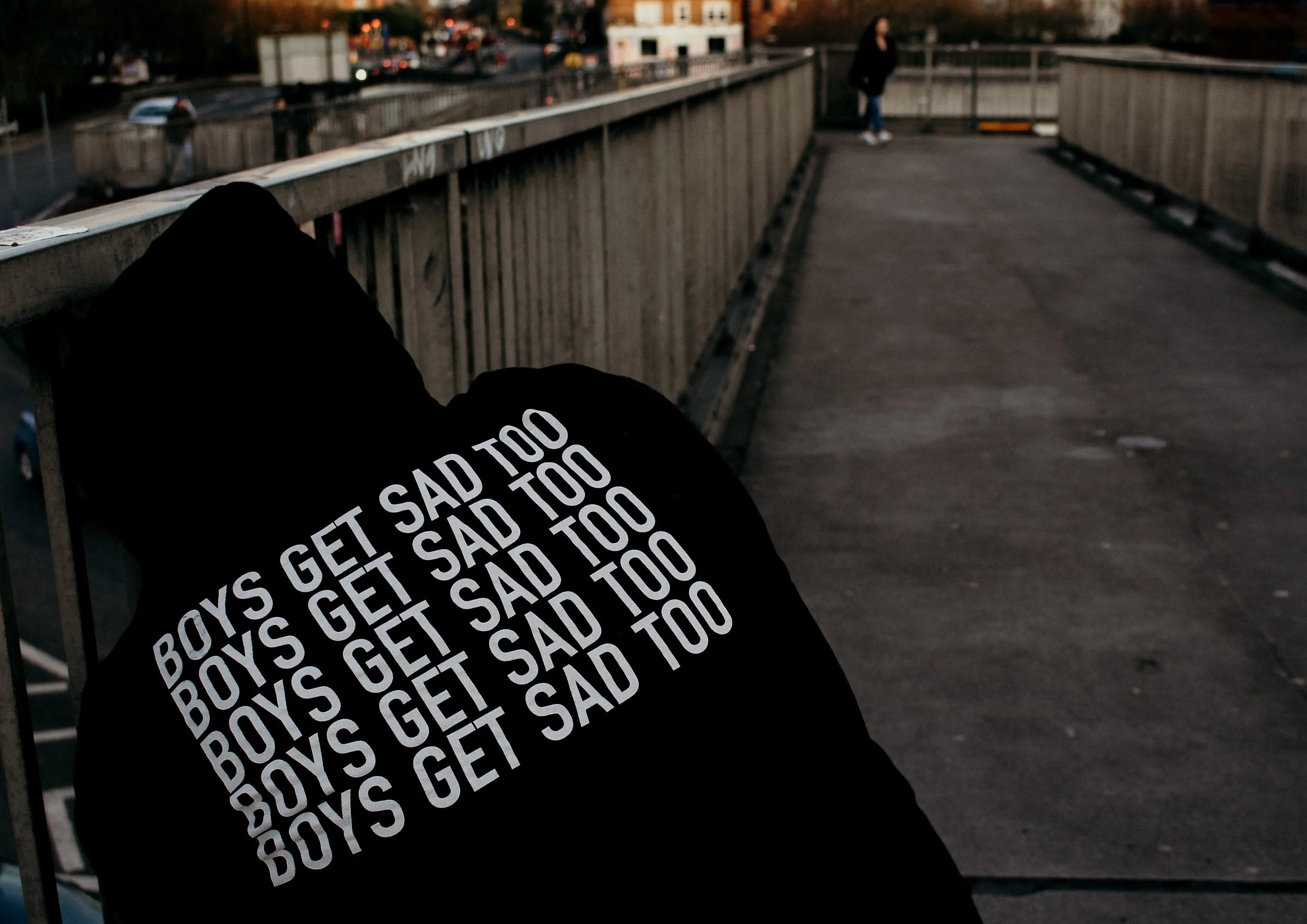“Grown Men Don’t Cry”
“Grown Men Don’t Cry”
Being brought up in a small mining/quarrying town in the Midlands in England and one of four boys, it was implied that “When things get tough, the tough get going” and there was little time for expressing emotions externally. The saying that “grown men don’t cry” was the norm and it was only in later life that I realized just how suppressive and damaging that thought is.
Working with many clients as a healer, I quickly realized the importance of being able to freely express whatever we are feeling as this is critical to our own health.
I have seen so many people overcome so called “terminal illnesses” through finding the blocked emotion that has caused that illness, and it is now widely accepted that no one should push down emotions but to express them openly - and to feel safe in doing so.
Many of you will recall the funeral of Princess Diana some 25 years ago, and I vividly recall seeing tough builders/bricklayers crying their eyes out along the procession – with what I suspect was not only their grief for Diana, but also pent-up emotions for their own “stuff” which had been pushed down for many years.
Crying has nothing to do with weakness but everything to do with emotional suppression.
While we still expect men to cry less than women, in some cases it has now become more acceptable for a man to cry than a woman, at least when it comes to our public officials.
Hillary Clinton’s tears in New Hampshire brought some compassion, but also criticism that such vulnerability made her ill-suited for leadership. Yet Mitt Romney choked up several times on various news programs without the slightest attention being paid to it. Many see tears as proof that a man is sensitive and humble and thus well-rounded.
It’s not entirely clear what changed our attitudes toward men crying, but for a while, stoicism was — and arguably still is — seen as important to masculinity, while crying and emotional vulnerability are associated with femininity.
Few men cry through pain and anguish but watching another person crying through loss and expressing their feelings is a different matter.
We often get “chocked” seeing tears being shed – as we did last week at the Queen’s funeral – or watching a touching story of hardships and despair – as it resonates on a deep level within our psyche.
The expression “a cry for help” is more than just a saying. Whether your tears stem from fury or grief, they let other people know you’re having a tough time.
If you feel unable to ask for help directly, your tears can convey this request without words. Keep in mind that this doesn’t mean you’re crying on purpose — they’re a bodily response that most people can’t easily control.
This idea is backed up by a small 2013 study. Participants looked at pictures of sad and neutral faces with and without tears. In both categories, they indicated that people with tears on their faces seemed to have a greater need for support than those without tears.
If you’ve ever been moved to tears, you’ll know even emotions typically considered positive,-such as love, awe, joy, romantic longing, and gratitude,- can make you cry.
Experts believe these happy tears may help you process and regulate intense emotions.
There’s also a biological component: Women generally have more of a hormone called prolactin, which is thought to promote crying.
Men, on the other hand, have higher levels of testosterone, a hormone that could make it more difficult to cry.
It is interesting that emotional tears contain stress hormones and other toxins. Researchers have theorized that crying flushes these things out of your system, though more research is needed in this area.
Crying for long periods produces oxytocin and endogenous opioids, otherwise known as endorphins. These feel-good chemicals can help ease both physical and emotional pain. Once the endorphins are released, your body may go into somewhat of a numb stage. Oxytocin can give you a sense of calm or well-being. It’s another example of how crying is a self-soothing action.
As you know grieving is a process. It involves periods of sorrow, numbness, guilt, and anger. Crying is particularly important during periods of grieving as it can help you process and accept the loss of a loved one.
So, when you next feel you want to cry – be you male or female – just let the tears flow and don’t become embarrassed.
You are just being human!
Try it and see!
Love & Light
Roger
“For those who understand – no explanation is necessary – for those who do not understand, no amount of explaining will be sufficient”

